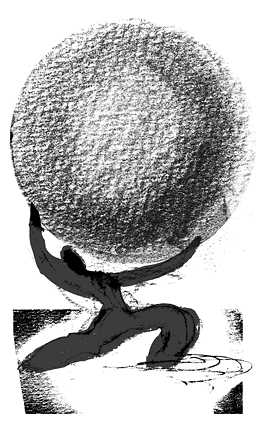Letters from CG
Japan, One Year Later: Rememberance, Preparation, Rebuilding - A Message of Thanks for America's Outpouring of Support, March 11, 2012
An unprecedented amount of work lies ahead for Japan one year after the devastating earthquake-tsunami-nuclear disaster. Seattle-based Japanese Consul General Kiyokazu Ota writes there is a lot of determination in Japan for this rebuilding effort, aided by strong international support
By Kiyokazu Ota
Special to The Seattle Times
ON the morning of March 11, 2011, a visitor came to the consulate office. We were holding an emergency meeting when I stepped out to greet her. I opened the door to the lobby to see a large bouquet of beautiful flowers being held by a woman I had never met before. She told me that she was very sad about what was happening in Japan and wished she could help, but all she could do was bring us some flowers. My heart was touched by her very American message: "I want to do something." She went on her way without leaving her name or address, but the flowers released their sweet fragrance throughout the office as a comforting reminder of her goodwill. I didn't know it at the time, but her visit was like the fall of the first pebble signaling the beginning of an avalanche of friendship and kindness unparalleled by anything I have ever seen. The reaction of Washingtonians was swift and heartfelt. Less than a week after the earthquake-tsunami-nuclear disaster, Gov. Chris Gregoire stood with many other volunteers outside the season opening of the Seattle Sounders with a Red Cross vest, a collection tin and a smile, welcoming generous soccer fans to the game. Mourners gathered around the Kobe Bell at Seattle Center and tolled out their grief for the thousands of victims and struggling survivors. Fishermen's Terminal held a candlelight memorial for Seattle's friendship port cities. The Space Needle joined iconic towers around the world to encourage Japan in a special light display. Groups too numerous to count from all over the state contributed in their own ways. Famous Washington-based businesses such as Boeing, Costco, Microsoft, Nintendo, Starbucks and Weyerhaeuser donated millions of dollars. More than 100 small businesses and community groups united under the charitable coalition SeattleJapanRelief.org. Organizations such as Peace Winds America and the YMCA, in addition to church groups, sent volunteers to Tohoku to assist the afflicted areas and deliver daily necessities. |
 |
|
With every message of sympathy, every dollar donated, every volunteer received, every smile of encouragement, came the message, "Japan, you are not alone." I would like to express my heartfelt thanks on behalf of my country. Through your kindness and generosity, you have shown us the true meaning of friendship, and we are so very grateful. This is reflected in the results of the poll that the Japanese Cabinet Office released in December, showing 82 percent of Japanese have friendly feelings toward the United States. This is the highest recorded since the poll's inception in 1978. We need to harness this mutual goodwill by investing in the future. Some Americans have already opened their hearts and homes to tsunami-afflicted children from the Tohoku region, offering them a vacation with a homestay in Washington state. The Japanese and U.S. governments, as well as private organizations, are working on a youth-exchange program between the tsunami-stricken areas and the U.S. Through caring for and encouraging these children, we will form new ties of friendship with the younger generations, helping both Tohoku and the relationship between our peoples. We will show our gratitude through our determination to rebuild. We will be like daruma. In addition to luck, these traditional, round, Japanese dolls are symbols of achieving goals and persevering through difficulty. Daruma dolls are constructed so that if they get knocked over, they flip themselves back upright. Although Tohoku was struck by not one, but three kinds of disasters, thanks to the support we have received and continue to receive from our friends, we are finding our strength and getting back on our feet. In the wake of the tragedy, the Japanese people behaved in an orderly manner, showing great resilience and unity. Main road networks and railways were restored within two months. Supply chains were fully restored in six months to keep world business on schedule. Fifty-two thousand temporary housing units were manufactured and made available to evacuees. Fourteen ports were devastated by the tsunami, but all have since been reopened and 270 out of their 373 piers are now accessible and in use. Communities in the Tohoku region still face many challenges and tough decisions in the years ahead. Coastal towns washed away by the tsunami will need to decide whether to relocate to nearby hilltops, or rebuild where they are and rely on tsunami shelters. Regardless of the location, the new towns will be efficient, modern, eco-friendly communities of the future. However, this will not only be a Japanese effort. Special measures are being taken in the spirit of "open reconstruction," such as a five-year reduction in or exemption from corporate tax on companies locating new facilities in certain areas. Japan welcomes foreign partnership and investment in the rebuilding process, and invites travelers to witness the progress for themselves. An unprecedented amount of work lies ahead, but there is a lot of determination in Japan and strong international support. It is through this spirit of unity that we will succeed. |
|

